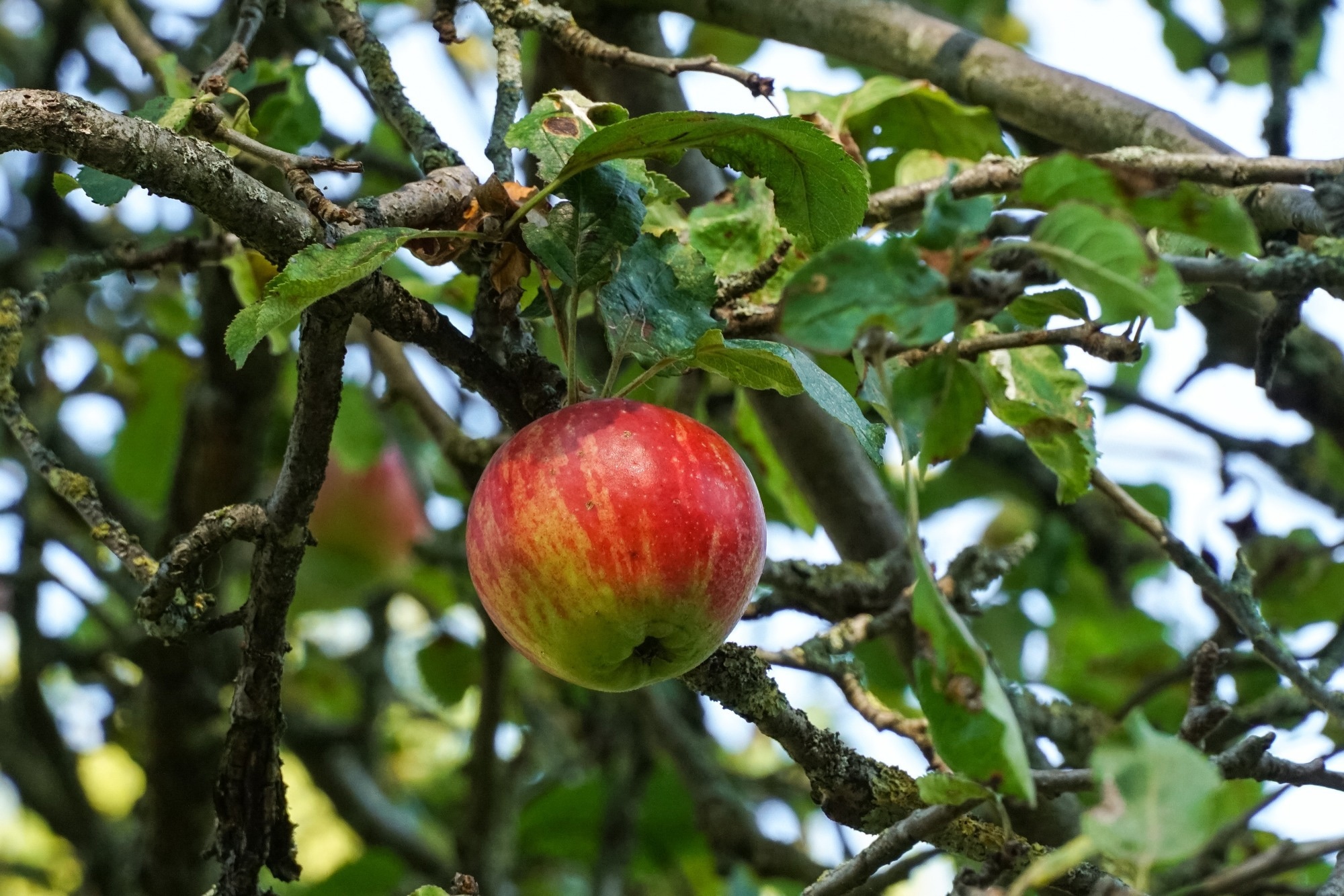In a recent study published in the International Journal of Molecular Sciences, a group of researchers evaluated the efficacy of 'Limoncella' apple polyphenol extract (LAPE) in mitigating inflammatory bowel disease (IBD)-induced hepatotoxicity through its antioxidant and anti-inflammatory properties in a dinitro-benzenesulfonic acid (DNBS)-colitis mouse model.
 Study: Polyphenol-Rich Extract from ‘Limoncella’ Apple Variety Ameliorates Dinitrobenzene Sulfonic Acid-Induced Colitis and Linked Liver Damage. Image Credit: Marcin Rogozinski / Shutterstock
Study: Polyphenol-Rich Extract from ‘Limoncella’ Apple Variety Ameliorates Dinitrobenzene Sulfonic Acid-Induced Colitis and Linked Liver Damage. Image Credit: Marcin Rogozinski / Shutterstock
Background
IBDs like Crohn's disease (CD) and ulcerative colitis (UC) lead to persistent digestive inflammation, and over 35% of patients suffer from extraintestinal manifestations (EIMs), worsening their life quality. These EIMs include joint, skin, and eye issues, with primary sclerosing cholangitis as a prevalent liver complication. The gastrointestinal system's connection to the hepatobiliary system exposes the liver to colitis-induced inflammation. Increased intestinal permeability in IBD allows gut flora to migrate to the liver, causing inflammation and damage. Polyphenols have shown promise in treating these issues due to their antioxidant, anti-inflammatory, and lipid-lowering properties. Notably, Limoncella apple polyphenols have demonstrated effectiveness in reducing colitis-induced liver damage, necessitating further research to clarify their mechanisms and potential in human IBD treatment.
About the study
Chemicals like DNBS, myeloperoxidase (MPO), and other reagents were sourced from reputable suppliers, ensuring high purity for the study. For the investigation of LAPE, apples were harvested from Castelvetere del Calore, Italy, and processed using a method involving methanol to extract the polyphenols, which were then analyzed through high-performance liquid chromatography (HPLC) to identify the polyphenolic content.
Male CD1 mice were housed under controlled conditions for the experimental model to ensure their well-being. The study followed ethical guidelines, with approval from relevant authorities. Colitis was induced in these mice using DNBS, and LAPE was administered to evaluate its therapeutic potential. Various concentrations of LAPE were tested to assess its effect on colonic inflammation and liver damage markers. Intestinal permeability was measured using fluorescein isothiocyanate (FITC)-conjugated dextran, while MPO activity assays and cytokine production measurements provided insights into the inflammatory response.
Histological analysis of colon and liver tissues, along with the assessment of serum biochemical markers, offered a further understanding of LAPE's protective effects against colitis-induced damage. The study's findings were rigorously analyzed, employing statistical methods to ensure the reliability of the results, pointing towards the potential benefits of LAPE in treating inflammatory conditions and their complications.
Study results
The present study analyzed the polyphenolic composition of LAPE using HPLC- Diode-Array Detection (DAD), revealing significant quantities of gallic acid, procyanidin B1, catechin, chlorogenic acid, and other polyphenols, indicating a rich polyphenolic profile beneficial for health. In experiments using the DNBS model of colitis in mice, LAPE showed promising anti-inflammatory properties by improving both macroscopic and histopathological damage caused by DNBS. Notably, LAPE administration led to a significant reduction in the colon weight/length ratio, an indicator of inflammation, and improved histological signs of colon injury, such as crypt loss and inflammatory cell infiltration.
Further investigation into LAPE's anti-inflammatory effects revealed a significant decrease in neutrophil infiltration, as measured by MPO activity, and a reduction in pro-inflammatory cytokines interleukin (IL)-1β and IL-6 in the colons of DNBS-treated mice. These findings underscore LAPE's potential in modulating inflammatory responses within the gut.
Moreover, LAPE's role in restoring intestinal barrier function was highlighted by its ability to significantly reduce increased intestinal permeability in DNBS-treated mice, as indicated by lower serum levels of FITC-dextran. The study also found that LAPE treatment helped maintain β-catenin levels on the cell membrane, which is crucial for cell adhesion and maintaining intestinal barrier integrity.
The research extended to examining LAPE's impact on liver dysfunction and lipid accumulation associated with colitis. DNBS-induced colitis resulted in elevated serum liver enzymes like Alanine Aminotransferase (ALT) and Aspartate Aminotransferase (AST) and increased lipid peroxidation, indicative of liver damage and oxidative stress. Remarkably, LAPE administration significantly reduced these effects, demonstrating its protective role against liver dysfunction and oxidative stress. Histological assessments further supported LAPE's efficacy, showing reduced hepatic lipid accumulation and improved liver histopathology in DNBS-treated mice.
Conclusions
To summarize, IBDs like UC and CD cause chronic gastrointestinal inflammation, potentially leading to liver damage. Current treatments, often associated with adverse effects, highlight the need for safer alternatives. This study focuses on
LAPE, demonstrating its effectiveness in reducing intestinal and liver inflammation in a DNBS-induced colitis model in mice. LAPE not only alleviated colonic inflammation by decreasing inflammatory markers and improving histological damage but also enhanced intestinal barrier function, potentially through modulation of the Wnt/β-catenin signaling pathway. Additionally, it reduced liver damage, evidenced by lower liver enzyme levels and decreased lipid accumulation, likely via inhibiting the Nuclear Factor kappa-light-chain-enhancer of activated B cells (NF-κB) pathway. The findings suggest that a small daily intake of Limoncella apples could be beneficial for IBD patients, offering a natural approach to reduce both intestinal and liver inflammation.
Journal reference:
- Lama S, Pagano E, Borrelli F, et al. Polyphenol-Rich Extract from 'Limoncella' Apple Variety Ameliorates Dinitrobenzene Sulfonic Acid-Induced Colitis and Linked Liver Damage. International Journal of Molecular Sciences. (2024), DOI: 10.3390/ijms25063210, https://www.mdpi.com/1422-0067/25/6/3210